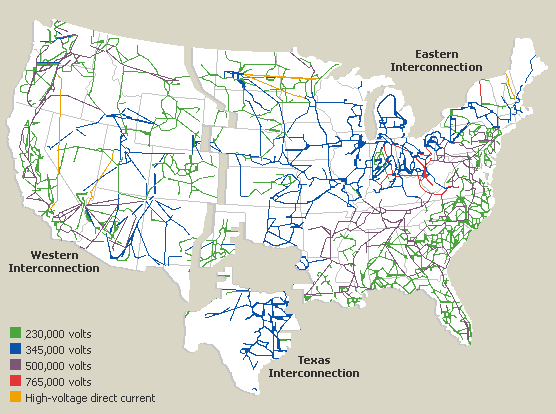
Anyone who’s lived in Florida during hurricane season knows that you can’t always rely on the power grid for electricity. Residents of Texas also know that it doesn’t take a natural disaster to take down the grid. Also the recent power failure from the busiest airport in the world – Hartsfield -Jackson Atlanta International Airport disrupted operations and forced the cancellation of more than 1,150 departing or arriving flights and the stranding travelers on planes for hours – shows us that we can’t always rely on the power grid.
Keeping the power on is becoming increasingly more difficult, but today we have more ways to go off-grid with our power supply. There are also a number of things you can do to prepare for grid outages so it’s easier to make ends meet until the power comes back on.
Invest in Solar Panels
Even if the power grid goes down, the sun will keep shining, or at least be generating positive photons. Homeowners that invest in residential solar systems are able to rest easy knowing that they aren’t dependent on the grid.
The trick to an efficient solar panel system is all in the setup. Panels have to be positioned precisely to catch the most sunlight. Things like the home’s orientation and tree coverage can make a huge difference. For this reason, some homes are better suited for solar panels than others.
Most preppers are self-reliant DIYers, but this is a project that requires professional help. In addition to solar panel placement, a professional installer will need to set up an inverter system for capturing the direct power (DC) from the panels and converting it into usable electricity. Don’t forget you may also need to obtain permits before you can install a solar panel system.
Buy a Back Up Generator
Another way to keep the power on when the grid goes down is by using a backup generator. Buying a backup generator starts with deciding which type of generator you want. There are relatively inexpensive portable generators and standby generators that can be installed at your home.
Standby generators are more expensive, but they’re also more reliable. However, gas-powered portable generators are the most popular option. The biggest consideration with any generator is choosing the right size. In general, the generator’s wattage needs to be higher than the load. To figure this out, add up the wattage of all the appliances, devices and lights you’d use during a black out plus the startup wattage for the biggest motor. This includes things like the furnace and water heater, which usually kick on first when the generator turns on.
Although gas-powered generators are commonplace, you have to be careful using them since they produce carbon monoxide. A gas-powered portable generator needs to be kept at least 10 feet away from the house.
Keep a Stock of Batteries and Candles
You don’t always need high-tech solar arrays or generators to ride out a power outage. Plenty of people can get by for two or three days using battery-powered lamps and candles. That is, as long as you have a stockpile of batteries and candles.
The one thing to watch out for is how you store batteries and candles. If you’re lucky, it may be a while before the next power outage, and the last thing you want is to think you have supplies only to find they’re no good.
Keep batteries in a drawer within your house so they stay dry at room temperature out of direct sunlight. When stored properly alkaline batteries can last for 5-10 years and rechargeable lithium batteries can last 10-15 years. The best way to store candles is in the refrigerator (not freezer). However, you should wrap them in plastic wrap or aluminum foil so the wick isn’t exposed to moisture.
Store Food That Doesn’t Need to Be Cooked
In addition to light, electricity is needed to cook many foods. You can easily bypass this problem by stocking up on foods that don’t need to be cooked.
Canned Goods – Canned goods are always a good option because they’re fairly cheap and can last for years.
Meal Ready to Eat (MRE) – Years ago only military members and their families were aware of MREs. Now, preppers have caught on to these complete meals in a bag that are ready to eat as soon as they’re opened.
Peanut Butter – Peanut butter is an excellent source of protein that can be eaten alone or smeared on bland foods.
Freeze-Dried Food – Freeze-dried meats, fruits and vegetables are just as nutrition as fresh options, but they last for up to 30 years. Just add clean water to re-hydrate before you eat.
Editors Note: Search our archives for numerous articles on food storage, batteries, generators, power cells and more to ride out any outage!















